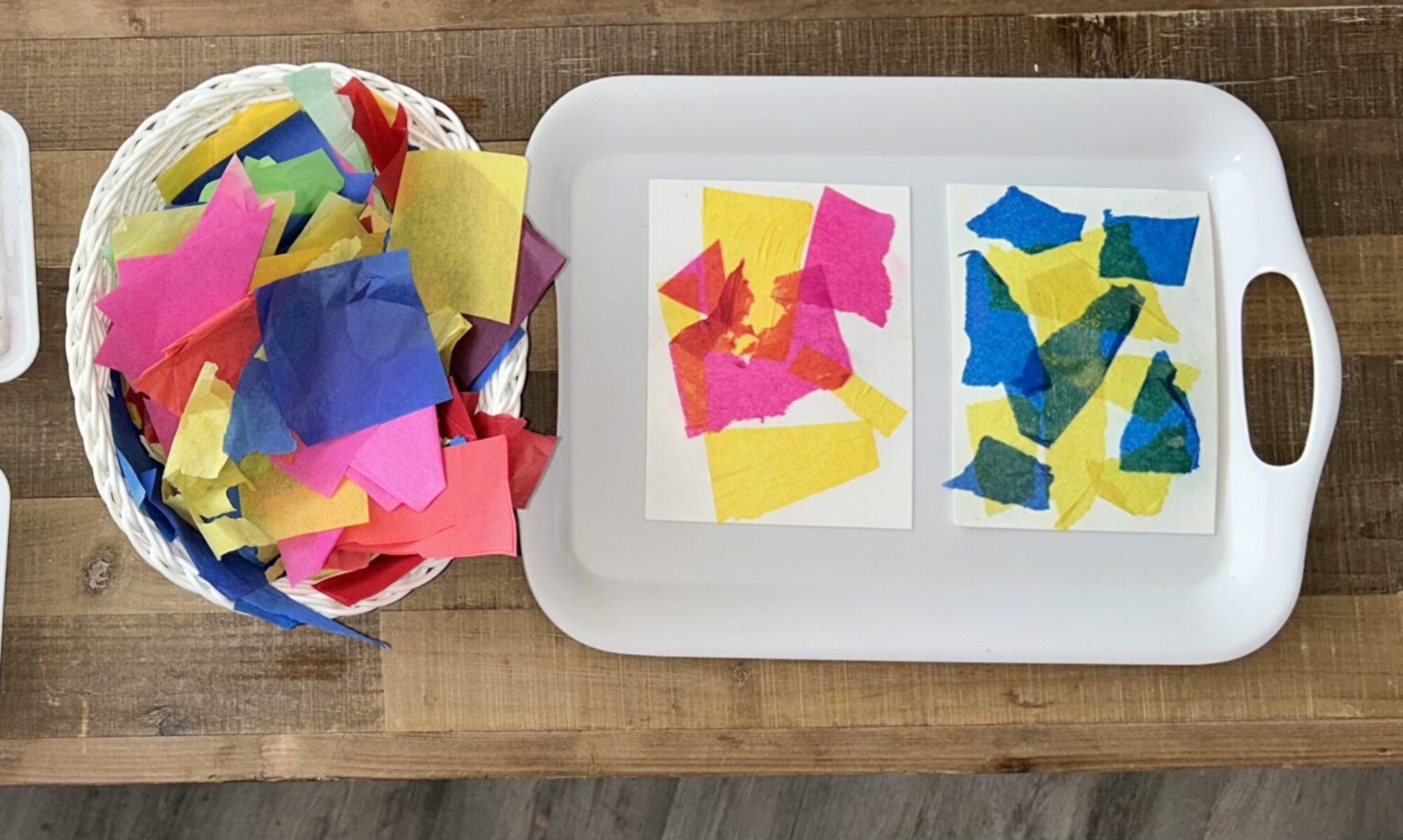
With the Chinese New Year just a few days away (in 2020, it falls on January 25th), why not use the holiday as inspiration for cultural arts or history art lessons? Chinese calligraphy and many pieces of Chinese art focus on brushstrokes and can easily be incorporated into a Montessori art lesson plan.
Thousands of years ago, painting and calligraphy emerged simultaneously, largely in part because they require the same tools: brush and ink. You might be surprised to know though, that calligraphy was considered to be “fine art” long before painting ever was. In fact, it wasn’t until the Song dynasty (960-1279), that painting was finally thought of as art.

We can learn a lot about Chinese art—both painting and calligraphy. Namely, the importance and variety of the Chinese brushstroke.

Sign-up to receive video
The Phases of Art Development is a quick digital course that explains how art making can help students develop their creativity, fine-motor skills, and focus. More importantly, I share what types of projects students at every age are capable of completing safely, and without making a mess.
Best of all—it’s free! To sign up for the course, click here.
Sumi-e Brushstrokes
Sumi-e ink painting is perfect for children to learn because of its simplistic pictorial nature-inspired images created using simple brushstrokes and without very many details or added texture.
In fact, I would say sumi-e paint exercises are ideal for beginner painters to start out with since it focuses on controlling brushstrokes—balancing between thin and thick. This is actually how I start painting lessons in my classes.

I’m currently in the process of building out a complete lesson around Chinese brushstrokes, but here’s a look at the exercises I’ll be including.

- Lesson 1: Load paintbrush without twisting the fibers
- Lesson 2: Wipe excess ink off the brush using the sides of a jar or ink stone
- Lesson 3: Practice making thin, long brushstrokes with the tip of the paintbrush
- Lesson 4: Practice making thick brushstrokes with a larger amount of the paintbrush
- Lesson 5: Practice making spirals and lines very slowly
- Lesson 6: Practice making dots and dashes
- Lesson 7: Practice making bamboo leaves, with simple short and long strokes all in only one try

Now, here’s a quick look at the Chinese New Year—feel free to share this information with your students!—and a way to practice brushstrokes to celebrate the holiday.
Chinese New Year
Chinese New Year is celebrated by more than 20% of the world. It’s the most important holiday in China and to Chinese people all over. It is a festival that celebrates the beginning of a new year on the traditional Chinese calendar.
2020 is the year of the rat.
2019 is the year of the pig.
In Chinese culture, pigs are the symbol of wealth. Their chubby faces and big ears are signs of fortune as well. Pigs have a beautiful personality and are blessed with good fortune in life.
Chinese New Year Art Project
Year Of The Pig, Chinese Sumi-e Ink Painting Lesson
The Chinese New Year is a great time to show students a way to embrace Montessori cultural arts. Here is a simple sumi-e ink brushstroke lesson. You will be creating—to celebrate the Year of the Pig—using simple brushtrokes and in just six steps.

Supplies:
- Black paint, watered down to the thickness of milk (watercolor, tempera, or acrylic will work; as well as Chinese ink)
- Bamboo, or pointed-tip paintbrush
- Thick white or red paper (red is good luck in Chinese culture)

Steps:
- Make the head with a rounded line circle shape
- Inside of that circle, create the pig’s snout with another, smaller rounded line circle; add two slight dots for the nostrils
- Paint two eye marks above the snout, plus two ears on the top of the head
- Make a long oval line to shape the body, attached to the head
- Add two line strokes at the bottom of the oval shape for its legs
- Make a curly corkscrew twirl on the side of the oval body; this will be the pig’s tail


If your students get excited about this project, make sure you sign up for my newsletter to get more Montessori art lesson ideas to share with them!


Sign-up to receive video
The Phases of Art Development is a quick digital course that explains how art making can help students develop their creativity, fine-motor skills, and focus. More importantly, I share what types of projects students at every age are capable of completing safely, and without making a mess.
Best of all—it’s free! To sign up for the course, click here.

All rights reserved © 2025, Nature of Art®
No part of this blog may be used or be reproduced in any manner whatsoever including reproducing, publishing, performing, and making any adaptions of the work – including translation into another foreign language without written permission except in the case of brief quotations embodied in critical articles and reviews. Nature of Art® Publishing P.O. Box 443 Solana Beach, California 92075.

